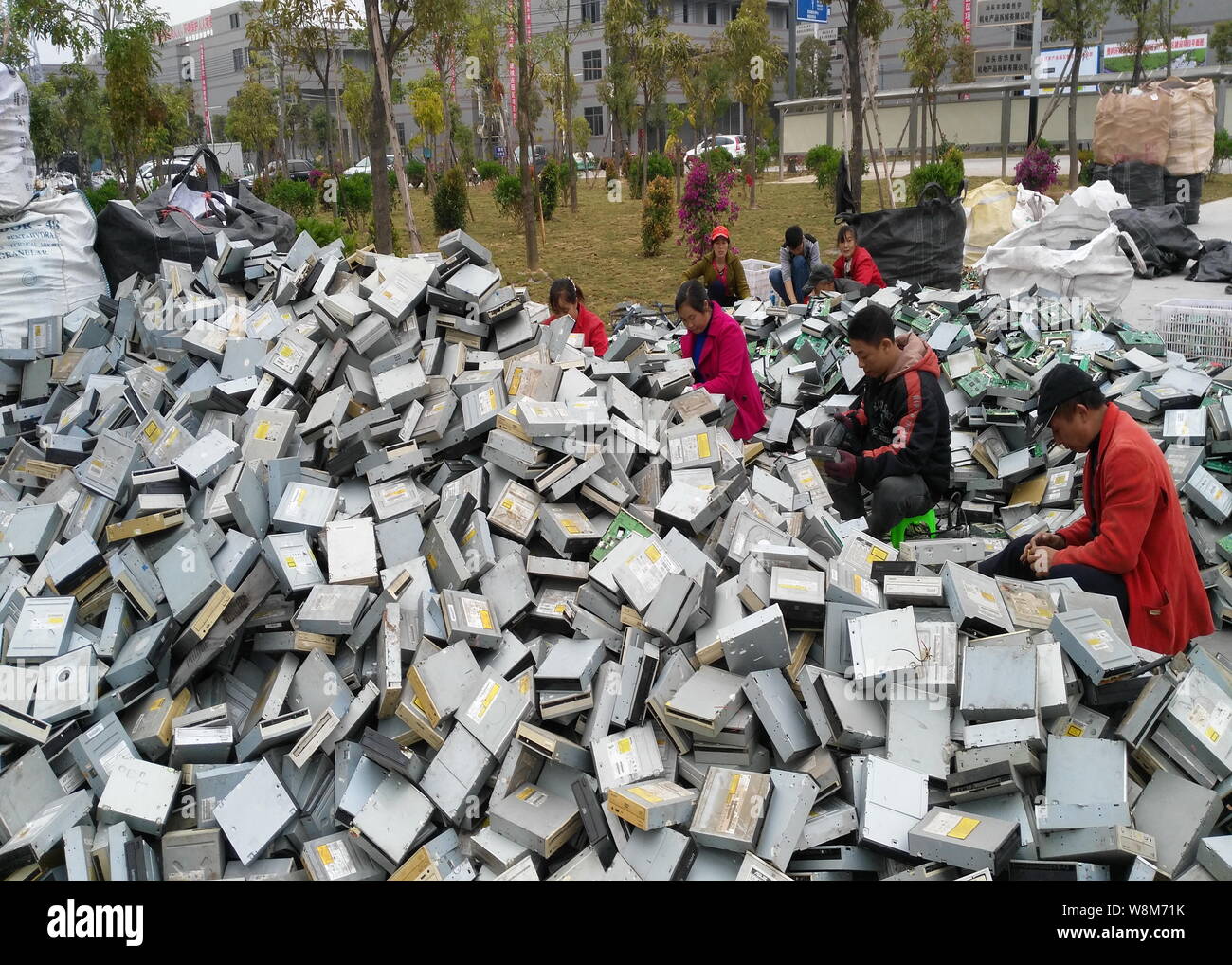Chinese workers remove components from hard drives of computers at a factory in Guiyu town, Shantou city, south China's Guangdong province, 26 Decembe

Image details
Contributor:
Imaginechina Limited / Alamy Stock PhotoImage ID:
W8M71KFile size:
36 MB (2 MB Compressed download)Releases:
Model - no | Property - noDo I need a release?Dimensions:
4200 x 3000 px | 35.6 x 25.4 cm | 14 x 10 inches | 300dpiDate taken:
26 December 2015Photographer:
ImaginechinaMore information:
Chinese workers remove components from hard drives of computers at a factory in Guiyu town, Shantou city, south China's Guangdong province, 26 December 2015. Did you ever wonder what happens to your old laptop or cellphone when you throw it away? Chances are some of your old electronic junk will end up in China. According to a recent United Nations report, "China now appears to be the largest e-waste dumping site in the world." E-waste, or electronic waste, consists of everything from scrapped TVs, refrigerators and air conditioners to that old desktop computer that may be collecting dust in your closet. Many of these gadgets were initially manufactured in China. Through a strange twist of global economics, much of this electronic junk returns to China to die. For the past decade, the southeastern town of Guiyu, nestled in China's main manufacturing zone, has been a major hub for the disposal of e-waste. Hundreds of thousands of people here have become experts at dismantling the world's electronic junk. On seemingly every street, laborers sit on the pavement outside workshops ripping out the guts of household appliances with hammers and drills. The roads in Guiyu are lined with bundles of plastic, wires, cables and other garbage. Different components are separated based on their value and potential for re-sale. On one street sits a pile of green and gold circuit boards. On another, the metal cases of desktop computers. At times, it looks like workers are reaping some giant plastic harvest, especially when women stand on roadsides raking ankle-deep "fields" of plastic chips. In one workshop, men sliced open sacks of these plastic chips, which they then poured into large vats of fluid. They then used shovels and their bare hands to stir this synthetic stew.